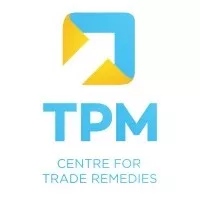Domestic Content Requirements (DCRs) are regulations enacted by the government mandating a particular percentage of a product's value to be sourced locally. However, such DCRs are highly debated since they violate the National Treatment Principle under the WTO Agreements, by differentiating between indigenous and foreign products. India has also introduced DCRs for products such as solar cells and modules as well as government procurement of iron and steel products. However, Indian DCRs concerning solar cells and modules were challenged before the WTO Panel and were found to be inconsistent with the GATT. While the DCRs are considered to be violative of National Treatment Principle, the GATT also provides certain exceptions under which measures such as DCRs may be introduced within the WTO framework.
Meaning of Domestic Content Requirements
Domestic content requirements (DCRs) are trade regulations enacted by governments to promote domestic production and employment by mandating a particular percentage of a product's value to be sourced locally. These standards minimize import dependence, encourage domestic producers, and generate jobs. However, they can also distort trade and be inconsistent with the WTO Agreements. Non-discrimination is the fundamental tenet upon which the WTO bases its framework for conducting commercial transactions, particularly in terms of the Most Favoured Nation (MFN) treatment and the National Treatment. DCRs contravene the non-discrimination norms, which makes them problematic. They violate the National Treatment principle by differentiating indigenous and foreign products.
India's domestic content requirements for solar cells and modules
India had introduced domestic content requirements with regard to solar cells and modules under the Jawaharlal Nehru National Solar Mission. The mission was intended as an initiative of the Government of India and State Governments to promote ecologically sustainable growth while addressing India's energy security challenge. Under the requirements, solar power companies that sell electricity to the government were required to source cells and modules from domestic producers. Such measures were introduced in light of the challenges faced by India, such as its rising energy deficit, as well as its dependence on fossil fuels and imported materials for its energy requirements. By introducing the measures, India aimed at reducing the cost of solar power generation in the country through long term policy, large scale deployment goals and domestic production of critical raw materials, components and products, in order to achieve grid tariff parity by 2022.
The measures were challenged by the United States before the WTO Panel. According to the Panel, the measures introduced by India violated both Article III:4 of the GATT 1994 and Article 2.1 of the TRIMs Agreement.
India maintained that the DCR measures were justified under the general exception under Article XX(j) of the GATT 1994 because its lack of domestic manufacturing capacity in solar cells and modules and/or the risk of a disruption in imports makes these "products in general or local short supply" under that provision. However, the Panel determined that the scope of the terms "products in general or local short supply" does not encompass products that are at risk of becoming scarce. Furthermore, the Panel concluded that India had not provided sufficient evidence to substantiate the presence of an immediate threat of a shortage. The Panel thus, reached the conclusion that India has not been able to sufficiently demonstrate the justifiability of the measures in question under the provisions of Article XX(j).
India's domestic content requirements for Iron and Steel Products
In 2019, India introduced the Policy for Providing Preference to Domestically Manufactured Iron and Steel Products in Government Procurement. Under the policy, all Government agencies are required to procure goods as well as EPC contracts from bidders that meet or have the capability to meet the minimum prescribed domestic value addition for iron and steel products as well as capital goods. The minimum domestic content requirements for various iron and steel products range from 15% to 50%. Further, the policy states that where the lowest bidder is a domestic supplier, they may be awarded the contract for full quantity. However, where the lowest bidder is a foreign supplier, they would be awarded only 50% of the contract quantity and the remaining would be awarded to the lowest bidder among the domestic suppliers. Such domestic supplier would be required to match the foreign bidder's price, if the domestic supplier's bid falls within the 20% margin of the purchase preference.
The policy was subject to investigation by the European Commission in the anti-subsidy investigation concerning imports of Stainless-Steel Cold-Rolled Flat Products from India. The Commission found the policy did not constitute a countervailable subsidy. It was held that while foreign companies were excluded from some bids, there was no price discrimination where the bids were open to foreign companies. The Commission did not notice substantial differences in the price levels between winning offers in tenders opened for foreign companies and those where they did not participate. However, while the Commission did not hold the policy to be countervailable in the instant case due to the applicable facts, such policy may constitute prohibited subsidy if found to be contingent, whether solely or as one of several other conditions, upon the use of domestic over imported goods.
When can Domestic Content Requirements be considered consistent with the WTO regulations?
DCRs represent a set of trade policy instruments that are strategically employed to establish specific conditions on imported goods and services. These conditions necessitate a predetermined threshold of domestic content to be incorporated within the production or provision process. The matter of these requirements has been a topic of extensive deliberation within the realm of international trade, as they possess the potential to either foster the growth of domestic industries or impede the principles of unhindered trade and fair competition. Nevertheless, it is worth noting that certain circumstances may warrant imposition of DCRs, thereby enabling countries to implement them without contravening established international trade regulations. This article delves into situations that allow deviations from the norm which are provided under the general exceptions outlined in Article XX of the GATT as well as under Article III:8 (a) of the GATT.
Article III of the GATT prescribes that the National Treatment Principle must be followed by all WTO members for the purposes of internal taxations and regulations. This requires the members to treat imported goods and domestically produced goods at the same level and prohibits discrimination on grounds of source of the goods. However, Article III:8 (a) of the GATT provides an exception to such rule. It provides that the National Treatment Principle shall not apply to laws, regulations or requirements which govern government procurement of products which are purchased for uses by such government and not with a view to commercially resell the goods. Thus, DCRs which allow the government to prefer domestic goods in their procurement for use in welfare objectives, are not inconsistent with the GATT.
With regard to general exceptions as outlined in Article XX of the GATT, it is important to note that certain measures may be justified under specific circumstances. These exceptions serve as a means to address various concerns and objectives, while still adhering to the principles and obligations of fair-trade set under the GATT. In accordance with the provisions outlined in Article XX, certain general exceptions emerge, which highlight various circumstances that may warrant exceptions for DCRs, provided that specific criteria are duly satisfied.
- The justification for implementing DCRs arises from the imperative need to safeguard the well-being and vitality of human, animal, or plant life. In certain instances, it is not uncommon for a nation to implement local content requirements pertaining to pharmaceuticals, with the primary objective of safeguarding the accessibility of vital medications during periods of health crises.
- The justification for implementing DCRs can be found in their objective to preserve exhaustible natural resources. In certain circumstances, it is not uncommon for a nation to impose regulations mandating a specific threshold of domestic involvement in the extraction and refinement of scarce minerals. This measure is implemented with the intention of safeguarding against excessive exploitation and depletion of such valuable resources.
Conclusion
The utilization of DCRs as trade policy instruments can indeed contribute to the advancement of domestic producers. However, it is crucial to exercise prudence in their implementation so as to prevent any potential conflicts with established international trade regulations. In accordance with the provisions outlined in GATT Article XX and the specific criteria established within RTAs, it is recognized that countries possess the ability to implement DCRs under particular circumstances, while still adhering to the principles of international trade regulations. It is of utmost importance for nations to thoroughly deliberate upon the justifications and conditions put forth by these exceptions, so as to ensure that DCRs effectively contribute to the promotion of equitable and sustainable practices in the realm of international trade.
The content of this article is intended to provide a general guide to the subject matter. Specialist advice should be sought about your specific circumstances.



